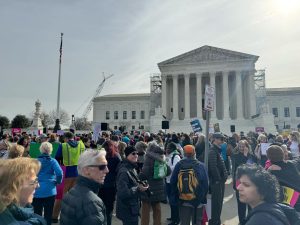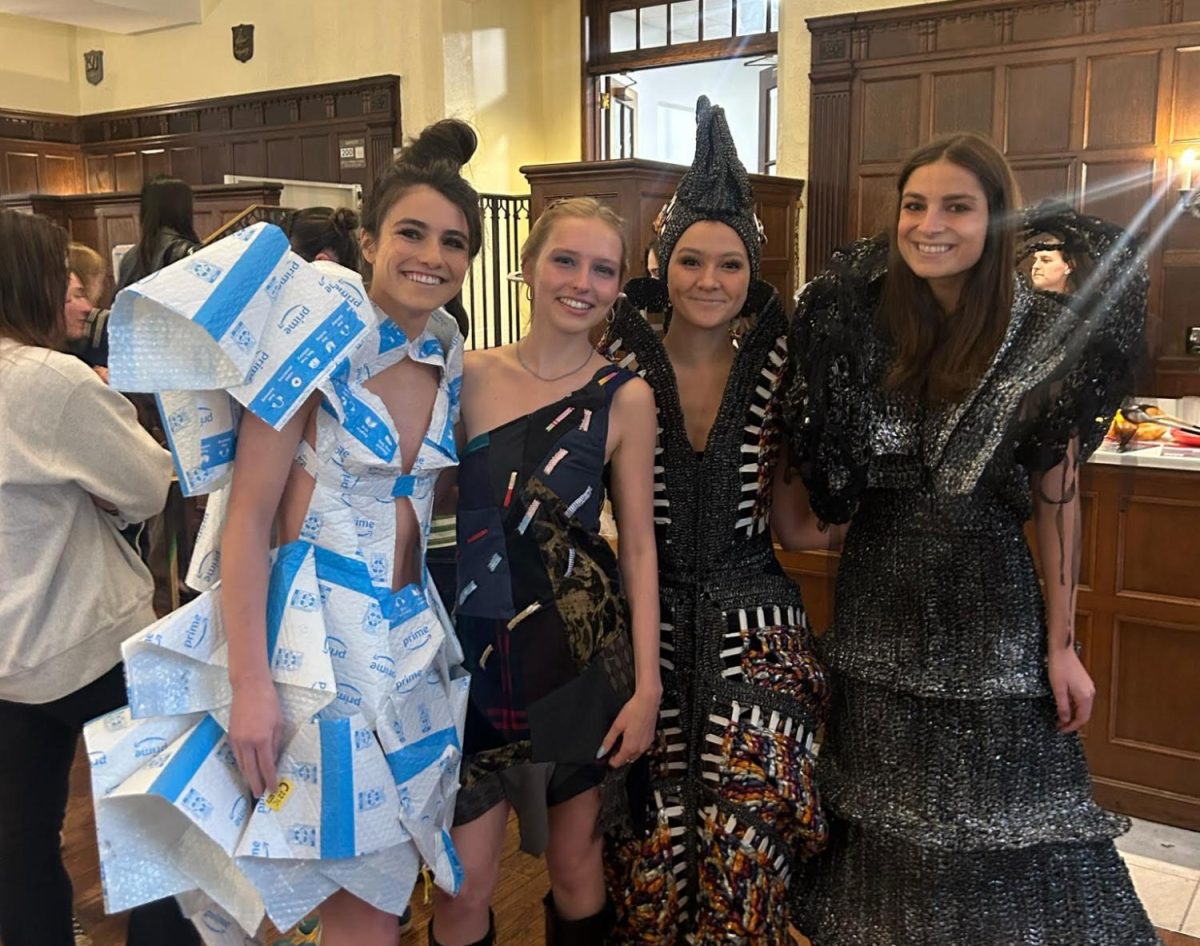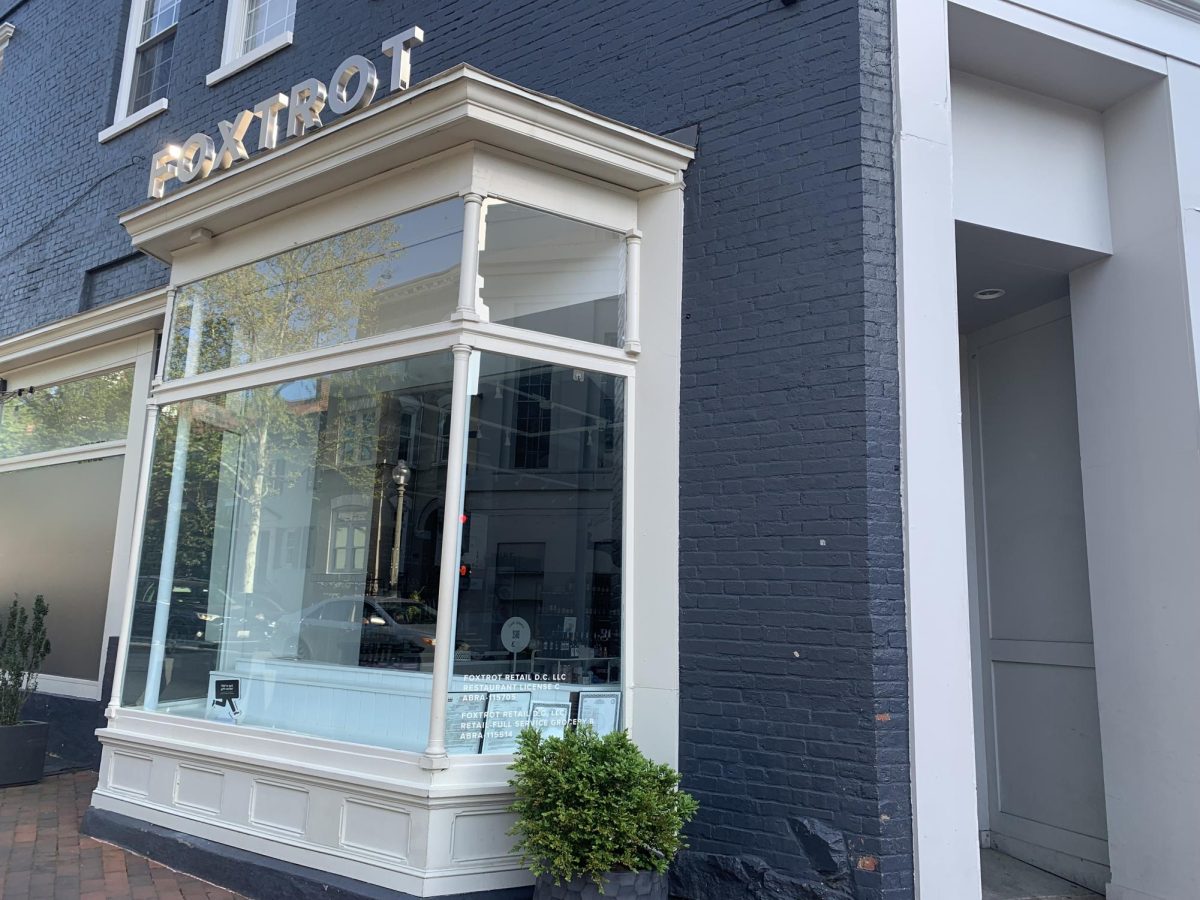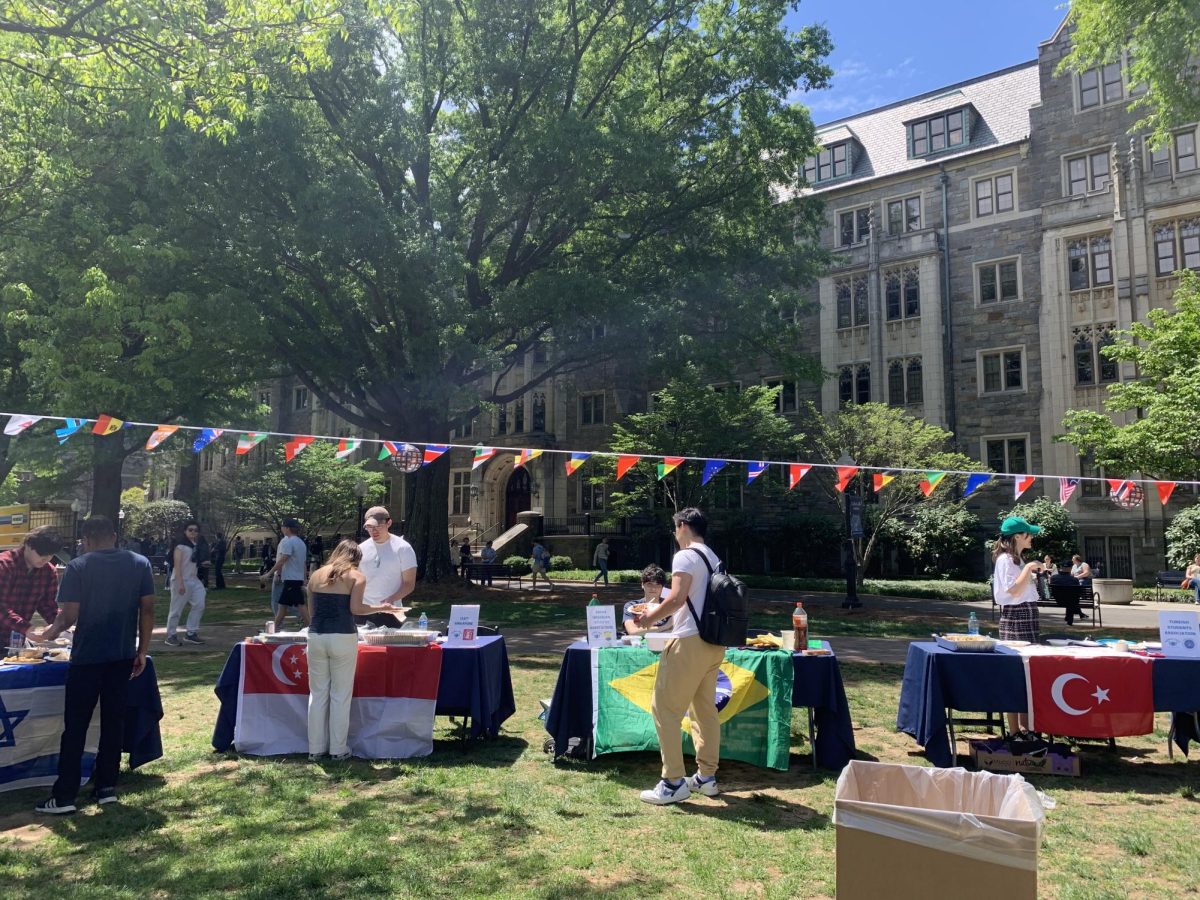Georgetown University students joined hundreds of protestors on the steps of the Supreme Court March 26 as the court heard oral arguments for a case that seeks to limit access to a drug that helps administer at-home abortions.
The case that prompted the rally was the Food and Drug Administration (FDA) v. Alliance for Hippocratic Medicine, a case that originated in a Texas circuit court attempting to limit access to mifepristone, an FDA-approved pill used for abortions. The case marks the first time the Supreme Court has ruled on a matter concerning abortion since they ruled in Dobbs v. Jackson Women’s Health Organization (2022) to overturn Roe v. Wade (1973), ending a half-century of legally protected access to abortion at the national level.
Steven Hansen (MSB ’26), a board member for Georgetown’s chapter of the American Civil Liberties Union (ACLU), which seeks to protect individuals’ civil liberties, attended the rally in support of the ACLU’s commitment to the pro-choice movement.

Hansen said that when he arrived at the rally, people had already gathered outside the building.
“People were coming in, wearing matching shirts, literally getting off by the busload in front of the Supreme Court,” Hansen told The Hoya. “When I got there, there were also a lot of speakers giving talks, and they had a whole podium set up. And there were different doctors, politicians and advocacy workers trying to rally everybody together.”
The Capitol Police arrested 13 people ahead of the rally for illegally blocking roads and a walkway. The Women’s March, a feminist organization that advocates for reproductive rights and one of the rally organizers, along with the Center for Popular Democracy Action, a nonprofit that promotes democracy and equity, confirmed that their members were among those arrested.
Elizabeth Oliver (CAS ’26), the president of Georgetown Right to Life (RTL), also attended the rally, though in support of the anti-abortion cause, which advocated for the justices to limit access to mifepristone.
Oliver said she spoke to people on both sides of the issue, including women in their 60s and 70s, who Oliver said reminded her of her grandmother.
“With those conversations with older people, I was trying to help them realize what the political climate is today and not 50 years ago,” Oliver told The Hoya.
Since Dobbs v. Jackson, many states have enacted legislation restricting reproductive rights, and the mifepristone case looks at a Texas circuit court’s ruling to limit access to the drug, which is used for about two-thirds of abortions in the United States.
The national ACLU is currently collecting signatures for a petition in support of continued access to medication abortions, and Hansen said that the Georgetown ACLU plans to continue promoting such petitions.
“We’re very conscious about the ACLU petitions that are being sent out. We put them on our website, we put them in our newsletters that we send out to our club members and we’re trying to support that way,” Hansen said.
Oliver said that moving forward, RTL will focus on tabling to foster community outreach as well as showing support for legislation that restricts abortion.
“We often go down to the Supreme Court or Congress or participate at different rallies in order to voice the fact that we want change to build a world where abortion is unthinkable,” Oliver said.
Since Dobbs v. Jackson, many states have increased abortion restrictions, including 28 states that limit abortions based on a fetus’ gestational age. Ahead of the 2024 presidential election, President Joe Biden has promised to expand reproductive rights if reelected. Conversely, former President Donald Trump stated he supports a national 16-week abortion ban.
A spokesperson for the Women’s March said activism among the pro-choice movement is increasingly important as the 2024 election grows closer.
“With the 2024 election approaching, and the GOP’s attack on women’s bodily autonomy growing disturbingly stronger every day — it’s crucial to shine a national spotlight on access to Mifepristone and for Americans to understand what is at stake for women not only in this court case, but at the polls in November,” the spokesperson wrote to The Hoya.
Hansen said attending the rally reminded him that it is important for Georgetown students to be politically active and engage in dialogue with those who have opposing viewpoints regarding the topic of abortion.
“I think getting our feet wet now is the best opportunity to expose ourselves and form our own opinions,” Hansen said.
“I think attending rallies like this where you can hear both sides of the argument, even if you may already have a preconceived notion of what you think is right, is really important just to continue to hear both sides of all the arguments and just to educate yourself,” he added.




















